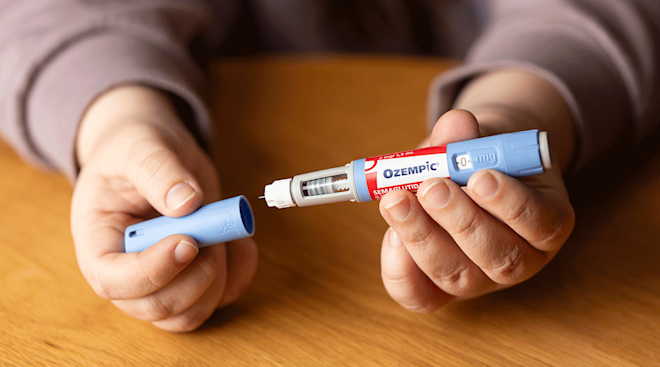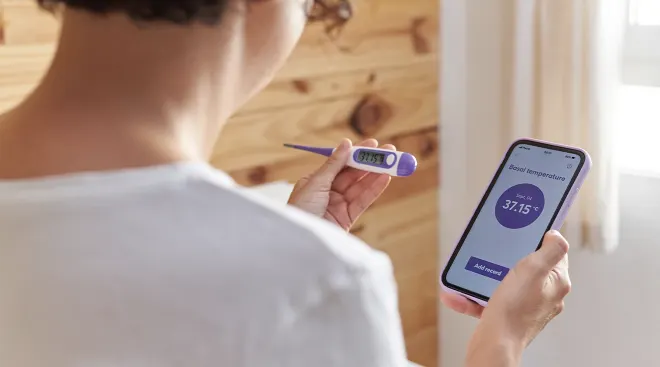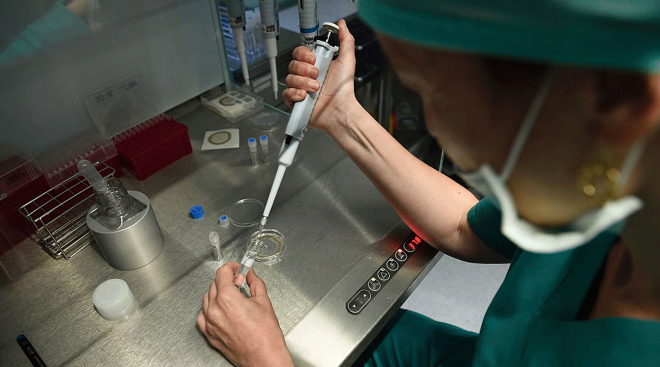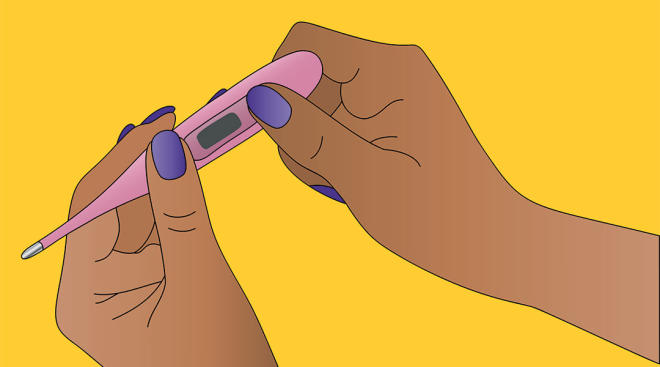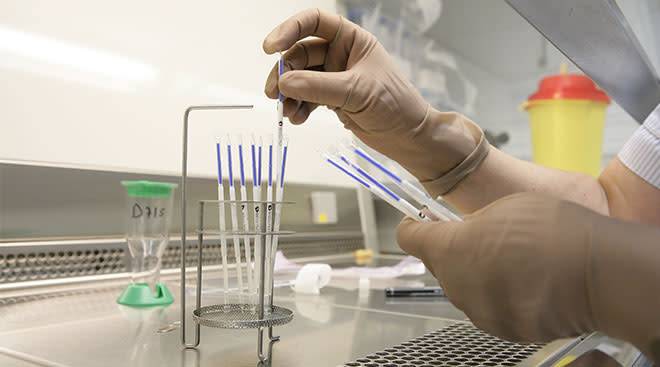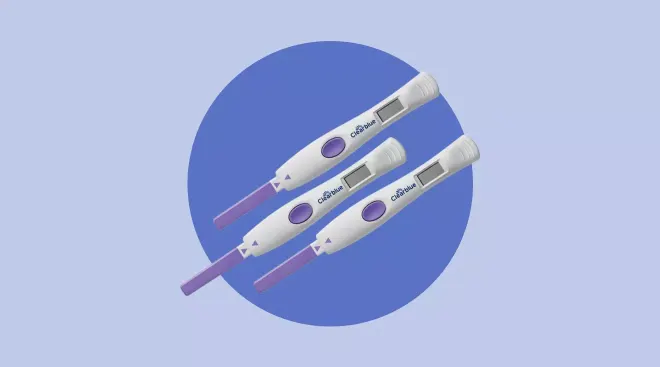Preconception 101: How to Prepare for Pregnancy
If you’re ready to start trying for a baby, you might be feeling both excited and nervous. Along with preparing your body for pregnancy, you’re likely trying to figure out how to get mentally and emotionally ready for this huge life change, while ensuring your relationship (and finances!) stay strong. Tackle these to-dos one day at a time to help set yourself up for a happier and healthier chapter—plus, get tips on how to prepare for pregnancy and parenting.
Planning to get pregnant? There are a few key ways to prepare your body for pregnancy, according to experts.
-
Schedule a doctor’s appointment. While preparing to get pregnant, it’s a good idea to book a preconception visit, advises Claudia Pastorelli Mosca, MD, an ob-gyn in Berlin and medical advisor at women’s health app Flo. You might also want to ask about preconception genetic testing, particularly if you or your partner know that certain genetic conditions run in your family.
-
Evaluate your meds. Discuss which medications you’re taking with your doctor since some shouldn’t be taken during pregnancy, says Jaclyn Tolentino, DO, a family medicine physician specializing in women’s health and fertility optimization and senior doctor at Parsley Health. Along with recommending whether you need to make any changes, they can let you know if any pre-existing medical issues could affect conception and pregnancy, adds Mosca.
-
Start taking a prenatal vitamin. Tolentino recommends starting a prenatal vitamin at least a month before getting pregnant. “Key structures in baby’s development happen within the first few weeks of pregnancy—typically before women learn they’re pregnant,” she says. Look for a formulation with at least 400 micrograms of folic acid, says Mosca. Depending on your doctor’s advice, you might also want to supplement with omega-3 fatty acids, vitamin D and iron, suggests Deborah Malkoff-Cohen, MS, RD, CDN, an NYC dietician and nutritionist certified in fertility and pregnancy nutrition.
-
Begin tracking your cycle. “Understanding your menstrual cycle is key to unlocking conception,” explains Mosca. “Sex during certain days of your cycle gives you the best chance of conceiving, so it’s super-important to understand the signals your body gives you.” To keep tabs, use a phone app or an old-fashioned calendar. Beyond using a calendar, you can look for physical clues that you’re ovulating, including an increase in clear, stretchy cervical mucus and a change in your basal body temperature—aka your body temperature just before you get out of bed in the morning.
-
Stop using birth control. If you’re taking a hormonal form of birth control (like the pill), your cycle might not regulate for a few months, explains Tolentino. That said, you could conceive quickly after stopping the pill, so use an alternate form of contraception if you’re not quite ready to get pregnant.
-
Start an exercise routine. The pre-pregnancy period is a great time to get moving if you aren’t already. Exercise strengthens your muscles—including your heart—which helps minimize pain and other issues during pregnancy, according to the American College of Obstetricians and Gynecologists (ACOG). Not to mention, exercise helps reduce stress, which research suggests can reduce your chances of getting pregnant.
-
Adopt healthier eating habits. Research suggests that improving your nutrition could boost your fertility. “Focus on fruits, vegetables, [high-fiber foods], beans, lentils, lean meats, fish and dairy,” suggests Malkoff-Cohen. “Switch to high-fiber grains to reduce your insulin spike after meals. Avoid processed meats like bacon, sausage [and] hot dogs.”
-
Avoid alcohol, smoking and recreational drugs. Studies show that drinking during early pregnancy could increase the risk of miscarriage, so consider skipping alcohol altogether to be on the safe side, says Mosca. Otherwise, it’s a good idea to reduce your consumption, she says. She also advises nixing smoking and recreational drug use before conception. According to research, smoking both tobacco and marijuana can negatively affect fertility.
Preparing for pregnancy means not only making sure that your body’s in tiptop shape, but that you’re mentally—and emotionally—ready for this chapter of your life.
-
Work on stress-busting techniques. You’re in for a bumpy emotional ride while trying to conceive and then once you get pregnant, says Diane Sanford, PhD, a licensed clinical psychologist in St. Louis and co-author of Stress Less, Live Better: For Pregnancy, Postpartum, and Early Motherhood. To help you navigate these challenges, develop a daily or weekly stress management routine, whether it’s exercising, playing with a pet or working on a crossword puzzle.
-
Know your history. If you have a personal or family history of depression or anxiety, you’re at a higher risk for postpartum mental health issues, says Sanford. Make sure to reach out to a mental health professional to discuss your concerns.
-
Don’t compare yourself to others. Avoid comparing your fertility journey to those of your friends or family, says Winnie Hunter, PhD, a clinical psychologist and senior instructor at the University of Colorado School of Medicine. Rather than focusing on what you might see on social media, follow your body’s cues and the expertise of your provider.
When you’re preparing for pregnancy, it’s important to take a close look at your relationship. Here are a few things you can do to strengthen your bond with your partner before you conceive.
-
Make sure you’re on the same page. Talk and make sure you’re truly aligned on whether and how much you’d like to expand your family and about the future of your careers, as well as what types of parents you hope to be. “Share your hopes and dreams for your future child,” says Hunter. “See what values and beliefs align and which differ, and work to understand which are non-negotiables and which are more flexible.”
-
Improve communication. Sanford suggests practicing your “relationship fitness.” This means learning how to express your feelings openly and asking for what you need directly, as well as resolving conflicts and dealing with differences constructively.
-
Spend quality time together. Having a baby can put a strain on your relationship, says Sanford. To help safeguard your bond, work on building up your “relationship reserves.” She suggests putting down your phones and spending time alone together, giving each other your full attention on dinner dates, walks or coffee runs.
-
Talk about the necessary stuff. “Be sure that legal paperwork is completed related to power of attorney and medical decision-making prior to [labor and delivery], so that it’s clear who you want to be involved in making decisions for your medical care,” Hunter advises.
Your financial health when preparing for pregnancy is almost as important as your physical and mental health. Here are the steps experts recommend taking.
-
Start saving, if you aren’t already. If you haven’t heard, pregnancy, birth and parenting are all expensive endeavors. It’s good practice to establish an emergency fund, says Brett N. Fry, CFA, CFP, a certified financial planner and the managing director of Forteris Wealth Management. Try to save at least four months of mortgage or rent payments, or—even better—of your total monthly expenses. Keep these funds in a savings or money market account that’s easy to access. “During the pregnancy and soon after, you will likely need extra funds available for unplanned expenses that pop up,” says Fry.
-
Look into state and employee benefits. If you or your partner plan to work less once you become pregnant or in early parenthood, prepare for reduced income, says Patrick S. Whalen, CFP, CTFA, a certified financial planner and the owner of Whalen Financial Planning. To help make up for any shortfalls, investigate what maternity or paternity benefits your company offers, he recommends. Also check to see if your state provides paid family leave for new parents. Depending on where you live, you might already be paying into your state plan through your payroll taxes. If you’re eligible for both state and employee benefits, see if you can receive both at the same time.
-
Review your health insurance plan. If you’re on an employer health plan, assess your options during your open enrollment period, suggests Matt Fizell, CFP, a certified financial planner and owner and chief commercial officer of Harmony Wealth. If you’re planning on having a child, being on the HSA-eligible plan might not make the most sense, he adds. For the year you plan on getting pregnant and having a baby, consider switching to a plan with a lower out-of-pocket maximum with out-of-network coverage for specialists or other new providers related to your pregnancy.
Above all, give yourself grace and take baby steps toward this new period in your life. By getting a head start on preparations, you’ll make your path toward becoming a new parent that much smoother.
Please note: The Bump and the materials and information it contains are not intended to, and do not constitute, medical or other health advice or diagnosis and should not be used as such. You should always consult with a qualified physician or health professional about your specific circumstances.
Plus, more from The Bump:
Matt Fizell, CFP, is a certified financial planner and owner and chief commercial officer of Harmony Wealth.
Brett N. Fry, CFA, CFP, is a certified financial planner and the managing director of Forteris Wealth Management.
Winnie Hunter, PhD, is a clinical psychologist and senior instructor at the University of Colorado School of Medicine.
Deborah Malkoff-Cohen, MS, RD, BC-ADM, CDCES, CDN, is a dietician and nutritionist in New York City who is certified in fertility and pregnancy nutrition. She’s also a certified diabetes care and education specialist.
Claudia Pastorelli Mosca, MD, is an ob-gyn in Berlin and medical advisor at women’s health app Flo. She earned her medical degree from the Universidade de Mogi das Cruzes in São Paulo, Brazil.
Diane Sanford, PhD, is a licensed clinical psychologist in St. Louis and co-author of Stress Less, Live Better: For Pregnancy, Postpartum, and Early Motherhood.
Jaclyn Tolentino, DO, is a family medicine physician specializing in women’s health and fertility optimization and senior doctor at Parsley Health. She earned her medical degree from the Virginia College of Osteopathic Medicine.
Patrick S. Whalen, CFP, CTFA, is a certified financial planner and the owner of Whalen Financial Planning.
American Academy of Family Physicians, Preconception Carrier Screenings, September 2020
Mayo Clinic, Getting Pregnant, December 2022
American College of Obstetricians and Gynecologists, Physical Activity and Exercise During Pregnancy and the Postpartum Period, April 2020
Anxiety & Depression Association of America, Physical Activity Reduces Stress, October 2022
National Institutes of Health, NIH Study Indicates Stress May Delay Women Getting Pregnant, August 2010
Academy of Nutrition and Dietetics, Foods That Can Affect Fertility, April 2020
Substance Use & Misuse, Volume and Type of Alcohol During Early Pregnancy and the Risk of Miscarriage, May 2014
U.S. Food and Drug Administration, How Smoking Affects Reproductive Health, November 2021
Canadian Medical Association Journal, Marijuana and Fertility, June 2019
Learn how we ensure the accuracy of our content through our editorial and medical review process.
Navigate forward to interact with the calendar and select a date. Press the question mark key to get the keyboard shortcuts for changing dates.

































